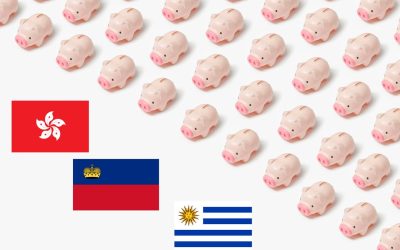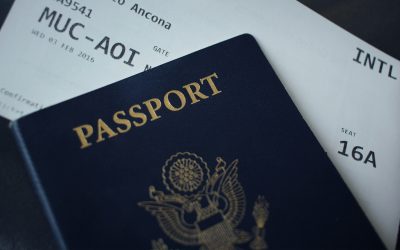Moving to the lovely island of Madeira appeals to many people. This Portuguese island boasts breathtaking scenery mild weather, and a rich culture offering a great lifestyle. Madeira attracts expats looking to enjoy a peaceful retirement, work in a paradise-like setting, or embark on a new adventure in a different place. The island presents various possibilities for newcomers. But before you dive into the relaxed island way of life, you should focus on one key step—scheduling a tax orientation meeting.
Knowing how your move impacts your global income and taxes can stop unexpected problems and keep your money safe in the future. This article will look at why you need a tax meeting, what you’ll learn, and how it can help you avoid big money mistakes.
What is a Tax Orientation Meeting?
A tax orientation meeting is a deep talk with a tax expert who knows a lot about international tax laws. For people moving to Madeira Island, this meeting shows you how Portuguese tax laws and world treaties will affect your global income, tax duties, and money responsibilities.
These meetings offer personalized guidance that fits your specific case covering all aspects from personal income tax, property taxes, capital gains tax, and possible double taxation. If you’re moving from another country, like the US, UK, or somewhere else in the EU, these talks help explain the tricky parts of dealing with taxes in more than one place.
Why Expats in Madeira Need a Tax Orientation Meeting
1. Understanding the Portuguese Tax System
Portugal’s tax system might look quite different from what you know back home. As an expat, you could face new types of taxes and rules you’re not familiar with. Madeira has some freedom, but it still follows Portugal’s tax laws. So, it’s key to know how they’ll tax the money you make both there and around the world.
Getting a tax overview will help you grasp crucial points about the Personal Income Tax Rates. Portugal uses a step-by-step tax system starting at 14.5% and going up to 48%. The meeting will explain where you fit in this range and how they’ll tax your overseas earnings.
2. Steering Clear of Paying Tax Twice
A major worry for people living abroad is getting taxed twice—paying taxes on the same money in two different countries. If you don’t know about tax treaties and local rules, you might pay more taxes than you need to. , Portugal has tax agreements with many countries to help lower or get rid of this problem.
When you meet with a tax expert, they will:
- Tell you how the double taxation agreements affect your case.
- Find tax credits or deductions to balance out taxes you paid in another country.
- Show you how to organize your income to pay less tax in your home country and Portugal.
3. Understanding Worldwide Income Taxation
Expats moving to Madeira often forget to think about how their money from all over the world will be taxed in their new home. In Portugal, if you live there for tax purposes, you must pay taxes on all your income, including:
- Income you make from jobs in other countries
- Income from investments, like dividends, interest, and profits from selling things in foreign accounts
- Income you get from renting out properties outside Portugal
So, a meeting to discuss taxes can help you determine what counts as taxable income under Portuguese rules. This lets you get ready. You’ll also learn more about how Portugal taxes different kinds of income—whether it’s from your job, your pension, or your investments.
4. Planning for Property and Inheritance Taxes
Expats who want to buy property in Madeira or leave assets to their heirs should get tax advice to learn about local property taxes and inheritance tax rules. Portugal doesn’t tax inheritance for close family members, but when you buy property, you’ll face specific fees and taxes, including:
- IMT (Property Transfer Tax): Changes based on how much the property costs.
- IMI (Municipal Property Tax): A yearly tax based on what the property is worth.
These things matter a lot when planning your estate and ensuring your finances don’t throw any curveballs at you.
5. Planning Your Pension and Retirement Income
Knowing how taxes will affect your pension is crucial for retirees moving to Madeira. Your tax situation depends on whether you get state pensions private pensions, or money from retirement accounts.
Who Should Go to a Tax Orientation Meeting?
A tax orientation meeting can help expats from many backgrounds such as:
- Remote workers and digital nomads who still earn money from other countries.
- Retirees who want to spend their pension on the island.
- Business owners or entrepreneurs looking to grow their companies overseas.
- Property investors buying houses or land in Madeira.
Understanding how your move to Madeira has an impact on your taxes holds great value no matter your financial expertise.
How to Get Ready for a Tax Orientation Meeting
To make the most of your tax orientation meeting, collect all important financial papers, including:
- Tax returns from your home country.
- Details on income sources (jobs, pensions, investments, etc.).
- Info about foreign bank accounts and assets.
- Any current tax advice or papers related to past moves.
The better you prepare the more your consultation will help to give you personalized advice.
Common Questions About Taxes for Expats in Madeira
1. Will I have to pay taxes on my worldwide income if I move to Madeira?
If you become a tax resident in Portugal, you’ll pay taxes on your worldwide income. But tax treaties and existing tax benefits can lower or get rid of some of this tax burden.
2. What could happen if I don’t report my foreign assets or income?
Not reporting foreign assets or income can lead to big fines and legal trouble. Portugal has tough rules about reporting.
3. Do I need to pay property taxes in Madeira?
When you buy property, you’ll need to pay the Property Transfer Tax (IMT) and Municipal Property Tax (IMI). These taxes change based on how much the property is worth and where it is.
4. Can I avoid double taxation?
Portugal has agreements with many countries to stop double taxation. These deals help you from paying taxes twice on the same money. A tax expert can tell you how these rules apply to you.
5. Does Madeira have an inheritance tax?
Portugal doesn’t charge inheritance taxes on close family (spouses, kids, and parents). But other taxes or fees might come up when you pass on assets.
Conclusion
Moving to Madeira Island gives you a chance to live in one of Europe’s most beautiful and friendly places. But before you start your new life, you need to know how it will affect your money. To protect your income pay less tax, and follow Portuguese and international tax laws, you must have a tax orientation meeting. This meeting is the most important thing you need to do. By getting expert advice, you can enjoy your new island home without worrying about money problems.
The information in this article on “tax orientation meeting” is for general informational purposes only and is not intended to constitute legal advice. While every effort has been made to ensure the accuracy of the content, laws and legal procedures can change, and the specifics of each case can vary widely. Therefore, readers are advised to consult a qualified professional or attorney in Portugal for advice tailored to their circumstances before taking action. This article does not create an attorney-client relationship between the reader, the authors, or the publishers. The authors and publishers are not liable for any actions taken or not taken based on the content of this article.
The founding of Madeira Corporate Services dates back to 1996. MCS started as a corporate service provider in the Madeira International Business Center and rapidly became a leading management company… Read more




